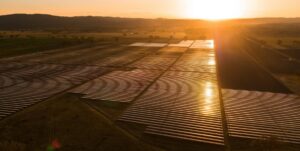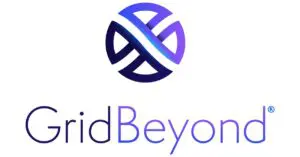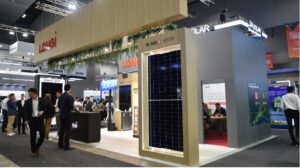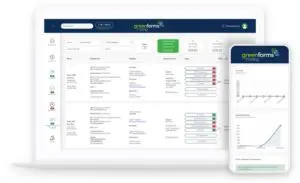PRESS RELEASE
In an Australian first, Pearl Global Limited (Pearl) (ASX:PG1) has begun commissioning its first production plant after receiving state government, environmental and council approvals for its unique process to convert waste tyres into valuable secondary products.
Pearl Executive Chairman Gary Foster said, “This is a turning point for used tyre processing in Australia. We are the first company in Australia to receive licenses for the thermal treatment of rubber, to reclaim and recover valuable products for resale.
“Our technology is a significant advancement on other methods of processing waste tyres because it has low emissions, no hazardous by-products, requires no chemical intervention and is the only process that meets the standard emissions criteria set by the Australian regulators for this type of technology.”
Pearl recently received planning approval from the Gold Coast City Council and has approval from Queensland’s Department of Environment and Heritage. It already holds an environmental licence from the Western Australian Government Department of Environment Regulation.
Pearl (formerly Citation Resources Limited) today rejoined the ASX following a reconstruction and a $5 million capital raising.
Unique technology
Pearl’s technology uses an applied heating process called thermal desorption to cleanly convert end of life tyres into products including liquid hydrocarbon, high tensile steel and carbon char. These products can be sold commercially or further processed to create higher value-added products. The process can also potentially generate power for a range of other uses.
Pearl has constructed its first production plant, with two thermal desorption units (TDUs), in Stapylton, Queensland, and initial commissioning is under way. The second TDU is owned by Pearl’s intellectual property licensor and contracting partner Keshi, and will be purchased by Pearl as soon as practical.
“This is the first plant of its type in Australia and we expect to be ramping up to full production over the coming months,” said Mr Foster.
At full production, each TDU can process approximately 5,000 tons of shredded rubber per week (equivalent of around 50,000 car tyres) which provides on average a weekly output of 1.5 million litres of raw fuels, in the form of liquid hydrocarbons.
Successful product testing
Pearl also announced that its first degreaser products had passed a critical performance test.
Pearl’s thermal treatment of waste rubber generates a raw fuel that comprises over 1,000 elements, including high value solvents. Pearl is developing recipes using these solvents, focusing initially on degreasers and industrial parts cleaners.
With assistance from The Centre for Energy at the University of Western Australia, Pearl’s degreaser products have been tested and scientifically compared to existing commercial degreasers and they have surpassed the standards required for commercial degreasers, with one of them showing the best performance of all the degreaser products.
This is excellent progress,” Mr Foster said. “We will continue to develop the potential commercial products in the coming months, with the aim of moving to field trials soon after.”
A clean solution to a global problem
It is estimated that the world community disposes of more than 1 billion tyres every year. In 2015, Australia disposed of more than 51 million tyres. Of these, only
In 2018, Tyre Stewardship Australia expects the number of tyres disposed of in Australia to increase to 56 million tyres. Of these, only around 5% were recycled locally, around 32% were exported for recycling and energy recovery, and the remainder were landfilled, stockpiled, illegally dumped or ‘lost’. In 2018, Tyre Stewardship Australia expects the number of tyres disposed of in Australia to increase to 56 million tyres.
Tyres are not naturally degradable, with tyre fires3 and pollution4 becoming major causes for concern. Governments are increasingly seeking solutions for dealing with the waste.
Pearl’s technology provides a clean alternative to current recycling options, which include shredding tyres for constructing into playgrounds and other products, which have limited applications, or exporting baled tyres for further destruction overseas.
An independent report by the University of Western Australia has confirmed that the process can operate in a low emissions environment.
“This is a technology invented in Australia that will contribute to solving a serious global environmental problem,” Mr Foster said.
“We believe there is great potential in Australia to immediately deploy our technology at sites close to where tyres have been stockpiled,” Mr Foster said.
“With governments seeking or mandating solutions for waste, Pearl is well placed to offer a solution that is both environmentally sound and commercially viable.”
Pearl has applied to be an accredited member of Tyre Stewardship Australia (TSA), a program established by the Australian government to reduce the number of end of life tyres damaging the environment, increase the recycling rate and to promote the development of viable markets for end of life tyres.
R&D benefit
Pearl has received a cash payment of $542,000 from the Australian Taxation Office as a result of research and development incentive claims in its 2016/2017 taxation return.
Advisors
Cadmon Advisory was the lead manager for the capital raising via public offer of 25 million shares at 20 cents per share to raise $5 million. The funds will enable Pearl to comply with the ASX listing requirements, administration funding and working capital.
Further information
Investors – Cameron Low, Cadmon Advisory, +613 9225 5474, [email protected] Media – Scott Hinton, Vaughan Partners, +61 419 114 057, [email protected] Website – https://pearl-global.com.au










